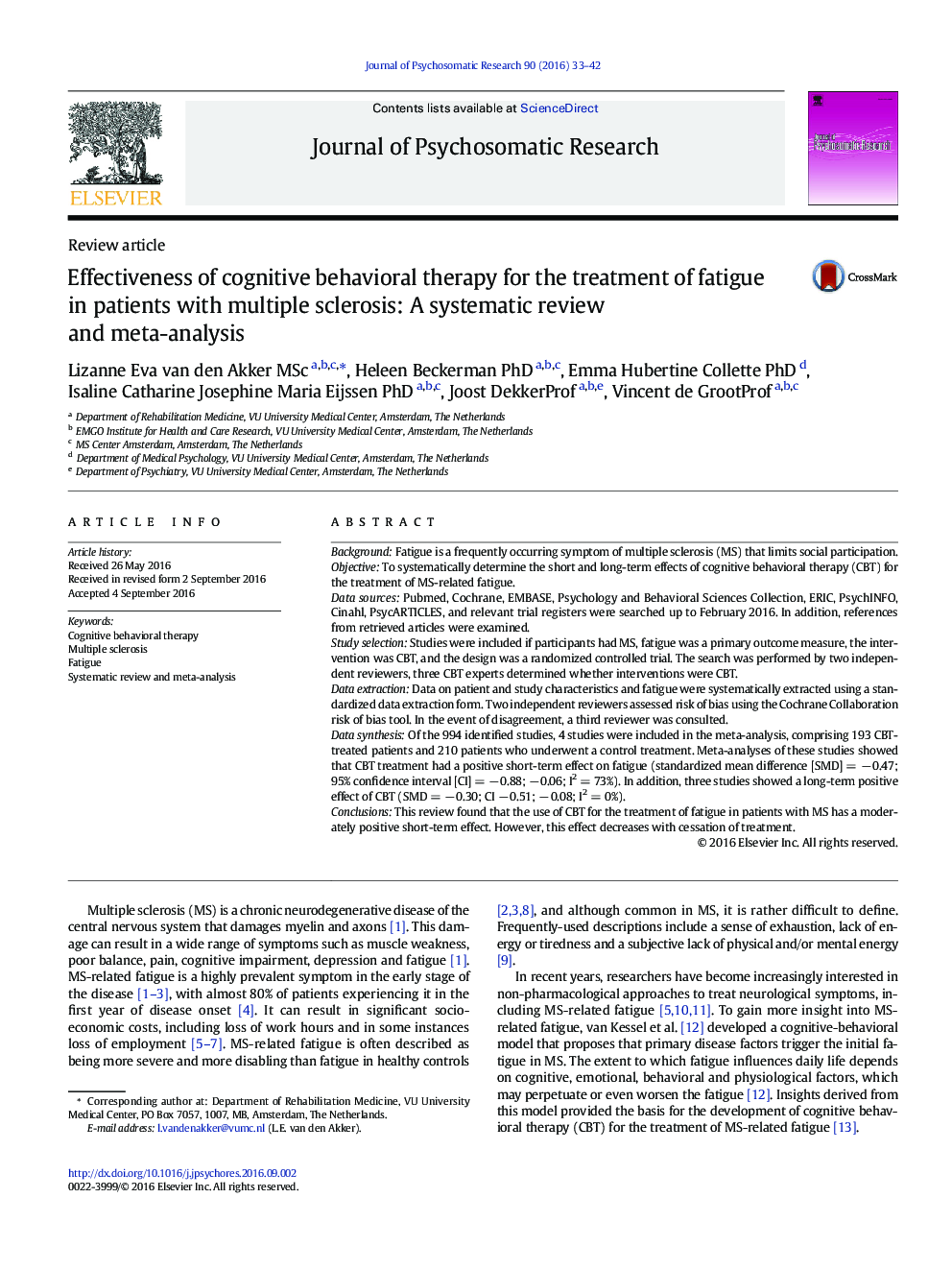| Article ID | Journal | Published Year | Pages | File Type |
|---|---|---|---|---|
| 5046119 | Journal of Psychosomatic Research | 2016 | 10 Pages |
â¢A meta-analysis and review about the effectiveness of CBT for MS-related fatigueâ¢The results suggest a moderately positive effect of CBT for MS-related fatigue.â¢CBT should be considered an evidence-based therapy for MS-related fatigue.
BackgroundFatigue is a frequently occurring symptom of multiple sclerosis (MS) that limits social participation.ObjectiveTo systematically determine the short and long-term effects of cognitive behavioral therapy (CBT) for the treatment of MS-related fatigue.Data sourcesPubmed, Cochrane, EMBASE, Psychology and Behavioral Sciences Collection, ERIC, PsychINFO, Cinahl, PsycARTICLES, and relevant trial registers were searched up to February 2016. In addition, references from retrieved articles were examined.Study selectionStudies were included if participants had MS, fatigue was a primary outcome measure, the intervention was CBT, and the design was a randomized controlled trial. The search was performed by two independent reviewers, three CBT experts determined whether interventions were CBT.Data extractionData on patient and study characteristics and fatigue were systematically extracted using a standardized data extraction form. Two independent reviewers assessed risk of bias using the Cochrane Collaboration risk of bias tool. In the event of disagreement, a third reviewer was consulted.Data synthesisOf the 994 identified studies, 4 studies were included in the meta-analysis, comprising 193 CBT-treated patients and 210 patients who underwent a control treatment. Meta-analyses of these studies showed that CBT treatment had a positive short-term effect on fatigue (standardized mean difference [SMD] = â 0.47; 95% confidence interval [CI] = â 0.88; â 0.06; I2 = 73%). In addition, three studies showed a long-term positive effect of CBT (SMD = â 0.30; CI â 0.51; â 0.08; I2 = 0%).ConclusionsThis review found that the use of CBT for the treatment of fatigue in patients with MS has a moderately positive short-term effect. However, this effect decreases with cessation of treatment.
